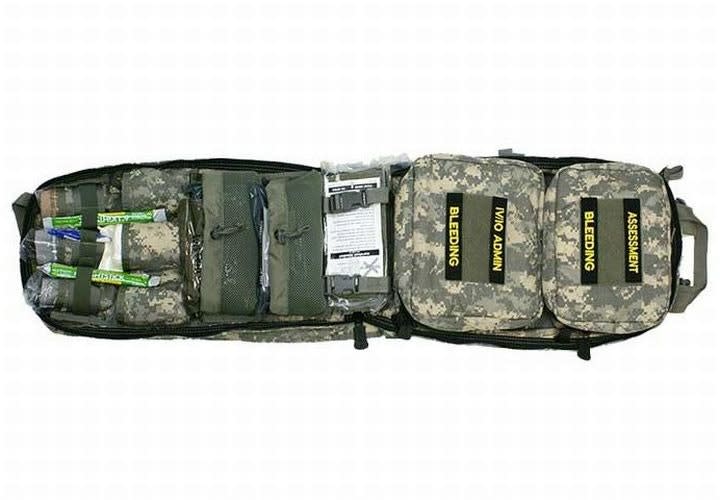I won't tell you what to carry; ask your tactical medic for advice. Visit tactical medical Web sites as well as police and military vendor Web sites to look at the IFAKs and squad kits for sale. There are several different packed kits ready for purchase, and some require you to add only an item or two. You must be prepared to handle a "blow out" of bleeding. Tourniquets, hemostatic agents, and dressing should your main priority. In other words, prepare for self-aid or buddy aid for serious trauma survival.
Advanced emergency services do support us, and they can and have saved many lives. If you're in a crash — trapped and bleeding out — you will die before they reach you. You need aid in the first few critical minutes.
Do your research on which IFAK is best for you, and practice with it. I know most tactical officers, range masters and many defensive tactics instructors carry them on their person for immediate deployment. Having it in your locker or in the trunk is not acceptable. While in uniform, it's difficult to carry much more on the duty belt. A deputy colleague has one tucked in his jacket pocket, which is great for cool weather but summer is still not covered.
Don't expect your department to buy this for you. You're looking at a $30-$50 investment in survival. Yes, there are a lot of cool things you could drop these dollars on. I think living is pretty cool, so re-think this and get one.
When I said practice with it, I meant that. If you're a victim, you could bleed out at night or in low light; know how to apply care to yourself. This is not the time to read the instructions to figure out how this or that works. Your survival is what is at stake.












